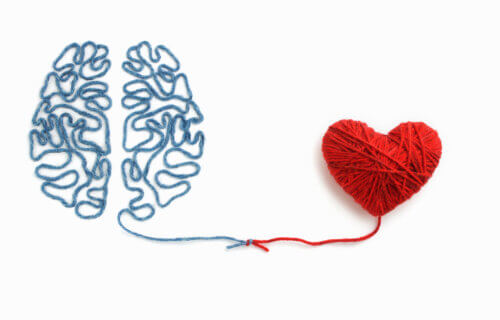SEOUL, South Korea — A massive study including over 6.5 million people finds an astoundingly strong connection between mental health and cardiovascular fitness. Study authors discovered that young adults in their 20s and 30s with mental disorders had an up to three-fold higher likelihood of suffering either a heart attack or stroke.
Notably, the research team from South Korea stress lifestyle choices did not explain this observed excess risk. Among analyzed individuals, one in every eight had a form of mental illness such as depression, insomnia, or anxiety.
“Psychological problems were common in young adults and had strong links with cardiovascular health,” says study author Professor Eue-Keun Choi of Seoul National University College of Medicine in a media release.
“The findings indicate that these individuals should receive regular health check-ups and medication if appropriate to prevent myocardial infarction and stroke. While lifestyle behaviors did not explain the excess cardiovascular risk, this does not mean that healthier habits would not improve prognosis. Lifestyle modification should therefore be recommended to young adults with mental disorders to boost heart health.”
The research team investigated the association between mental disorders in adults between the ages of 20 and 39 and the risks of developing myocardial infarction (heart attack) and ischemic stroke. This project made use of the Korean National Health Insurance Service (NHIS) database, covering the country’s entire population. A total of 6,557,727 young adults who underwent health examinations between 2009 and 2012, and had no history of myocardial infarction or stroke, took part in the study. The average age of these participants was 31, and over half (58%) were at least 30 years-old.
More than 1 in 10 people had a mental health disorder
Over 13 percent (856,927) of the participants had at least one mental health disorder. Among those with such a condition, nearly half (47.9%) had anxiety. More than one in five (21.2%) had depression and 20 percent had insomnia. Over a quarter (27.9%) of the participants with mental health problems had somatoform disorder — a condition that causes people to experience physical bodily symptoms in response to psychological distress.
Another 2.7 percent had a substance use disorder, 1.3 percent were bipolar, 0.9 percent had schizophrenia, 0.9 percent had an eating disorder, 0.7 percent had a personality disorder, and 0.4 percent had post-traumatic stress disorder (PTSD).
Researchers tracked the participants up until December 2018 for both new-onset myocardial infarction and stroke. Over the span of 7.6 years, on average, a total of 16,133 heart attacks and 10,509 strokes occurred. Researchers then analyzed the association between mental disorders and cardiovascular outcomes, after adjusting for additional factors possibly influencing this relationship such as age, sex, hypertension, diabetes, high cholesterol, metabolic syndrome, chronic kidney disease, smoking, alcohol, physical activity, and income.
Those who had any mental disorder displayed a 58-percent higher chance of heart attack and a 42-percent greater risk of stroke in comparison to others with no mental disorder. Risk of heart attack actually increased among all mental disorders studied, with the magnitude ranging from about 1.49 to 3.13-fold.

Looking at each condition separately, when compared to people with no mental disorders, risk of heart attack was 3.13 times higher in those with PTSD, 2.61 times higher for schizophrenia, 2.47 times higher for substance use disorder, 2.40 times higher among those with bipolar disorder, 2.29 times higher for personality disorder, 1.97 times higher for eating disorders, 1.73 times higher for insomnia, 1.72 times higher for depression, 1.53 times higher for anxiety, and 1.49 times higher for somatoform disorder.
Stroke risk increased for all mental health issues except PTSD and eating disorders, with hazard ratios that ranged from 1.25 to 3.06. Hazard ratios for each condition were as follows: 3.06 for personality disorder, 2.95 for schizophrenia, 2.64 for bipolar disorder, 2.44 for substance use disorder, 1.60 for depression, 1.45 for insomnia, 1.38 for anxiety, and 1.25 for somatoform disorder.
Study authors were also sure to analyze any associations according to both age and sex. Depression, anxiety, schizophrenia, and personality disorder all had a connection to a higher risk of heart attack among participants in their 20s compared to those in their 30s. Additionally, depression and insomnia displayed a link to a greater risk of heart attack and stroke in women than men.
“Patients with mental health problems are known to have a shorter life expectancy than the general population, with the majority of deaths due to physical illnesses. Our study shows that substantial numbers of young adults have at least one mental health problem, which may predispose them to heart attack and stroke. Future research should examine the cardiovascular benefits of managing psychological problems and monitoring heart health in this vulnerable group,” concludes study author Dr. Chan Soon Park of Seoul National University Hospital.
The study is published in the European Journal of Preventive Cardiology.

